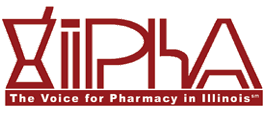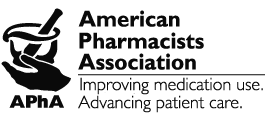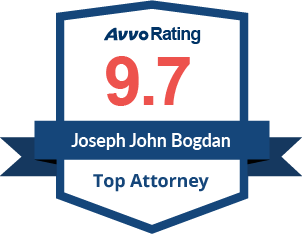Recent Blog Posts
Four Ways You Could Lose Your Nursing License in Illinois
 Most occupations in the healthcare field require specialized education and training that can take years and years of hard work. The last thing you would want to see happen is for all that work to be taken away from you because of one mistake. In the state of Illinois, there are certain rules and laws that you must follow when you are a nurse. A violation of these rules could result in disciplinary action, such as probation, suspension or other reprimanding actions. For some offenses, you could have your nursing license revoked, meaning it is permanently taken away from you. This can be devastating for those who have made their career from nursing. Here are a few ways in which your nursing license could be taken away:
Most occupations in the healthcare field require specialized education and training that can take years and years of hard work. The last thing you would want to see happen is for all that work to be taken away from you because of one mistake. In the state of Illinois, there are certain rules and laws that you must follow when you are a nurse. A violation of these rules could result in disciplinary action, such as probation, suspension or other reprimanding actions. For some offenses, you could have your nursing license revoked, meaning it is permanently taken away from you. This can be devastating for those who have made their career from nursing. Here are a few ways in which your nursing license could be taken away:
Refusal to Participate in a Recovery Program
Part of a nurse’s job is to dispense medication to patients. This means they have almost unlimited access to certain drugs, which can be tempting for nurses who have addiction issues. If it is discovered that a nurse has an addiction issue or abuses alcohol, the Illinois Department of Financial and Professional Regulation (IDFPR) will often suspend his or her license until they have entered an addiction recovery program. Nurses who refuse to enter a program or who cannot complete the program successfully may lose their nursing license.
Self-Audit Practices to Protect Yourself in Case of a Medicare Pharmacy Audit
 The world of healthcare is constantly changing. For some pharmacies, keeping up with these changes can be difficult, particularly for independent or small pharmacies. The Centers for Medicare and Medicaid Services (CMS) is the governing body that oversees the practices of different medical professionals who provide services covered by Medicare and Medicaid. One of the goals of CMS is to try to cut down on healthcare fraud and they do this by conducting audits to ensure providers operate within the legal standards. CMS audits can sometimes produce less-than-favorable results that could seriously affect the operation of your pharmacy and its financial wellbeing. Here are a few things you and your employees can do to minimize any errors or inadvertent fraudulent practices:
The world of healthcare is constantly changing. For some pharmacies, keeping up with these changes can be difficult, particularly for independent or small pharmacies. The Centers for Medicare and Medicaid Services (CMS) is the governing body that oversees the practices of different medical professionals who provide services covered by Medicare and Medicaid. One of the goals of CMS is to try to cut down on healthcare fraud and they do this by conducting audits to ensure providers operate within the legal standards. CMS audits can sometimes produce less-than-favorable results that could seriously affect the operation of your pharmacy and its financial wellbeing. Here are a few things you and your employees can do to minimize any errors or inadvertent fraudulent practices:
- Ensure you are meeting requirements for both non-controlled and controlled substances. When filling and dispensing a prescription, there are certain pieces of information that you must collect, plus a few special pieces of information for controlled substances. To fill a prescription, you must have the prescriber’s signature on the prescription, the name, strength and dosage form of the drug, the directions for use and the number of pre-authorized refills (if any). For controlled substances, the prescriber must have the appropriate authority to prescribe such a drug and the prescriber must manually sign the prescription on the date it was issued.
Understanding Disciplinary Actions a Licensed Professional Could Face
 Each year, thousands of licensed professionals receive some sort of disciplinary action against them in Illinois. The Illinois Department of Financial and Professional Regulation (IDFPR) is the regulating body for many of Illinois’ professionals, including physicians, nurses, pharmacists, chiropractors and dentists. These professionals are held to a higher standard than other citizens and they each have certain rules they must follow. Breaking those rules could result in disciplinary action, which comes in a variety of forms. If you are a licensed professional and you are facing any of these actions, it is crucial you understand exactly what they mean.
Each year, thousands of licensed professionals receive some sort of disciplinary action against them in Illinois. The Illinois Department of Financial and Professional Regulation (IDFPR) is the regulating body for many of Illinois’ professionals, including physicians, nurses, pharmacists, chiropractors and dentists. These professionals are held to a higher standard than other citizens and they each have certain rules they must follow. Breaking those rules could result in disciplinary action, which comes in a variety of forms. If you are a licensed professional and you are facing any of these actions, it is crucial you understand exactly what they mean.
Types of Disciplinary Actions
Once a complaint has been filed against you, the department may or may not launch an investigation into the complaint. The investigation could result in nothing happening, but it could also result in some form of discipline. Here are a few common ways the IDFPR could discipline a licensed professional:
Understanding the Complaint Process Against Illinois Physicians
 According to the Illinois Department of Financial and Professional Regulation, there are around 3,000 complaints filed each year against doctors and other medical professionals. There are many reasons why a physician or medical professional could have a complaint lodged against him or her -- and there are 50 different actions specified in the Illinois Medical Practice Act of 1987 that could result in disciplinary action against a physician. Some of the most common complaints include unprofessional conduct and substandard care, but any complaint is a possible threat to your medical license. It is important to understand the process of a complaint if you have one filed against you.
According to the Illinois Department of Financial and Professional Regulation, there are around 3,000 complaints filed each year against doctors and other medical professionals. There are many reasons why a physician or medical professional could have a complaint lodged against him or her -- and there are 50 different actions specified in the Illinois Medical Practice Act of 1987 that could result in disciplinary action against a physician. Some of the most common complaints include unprofessional conduct and substandard care, but any complaint is a possible threat to your medical license. It is important to understand the process of a complaint if you have one filed against you.
Initial Claims Are Made
When an initial claim is made to the Board about allegations against a physician or other professional, the complaint process is started. The disciplinary board will provide the complainant with information about the complaint process and information on whether or not the claim has become a complaint and why. The claims are forwarded to the Chief of Medical Investigations to determine whether or not the claim will become a complaint.
Avoiding a Sexual Misconduct Claim
 Here in the state of Illinois, medical employees are monitored and regulated by the Illinois Medical Board. With over 3,000 complaints made each year against medical personnel, the disciplinary bBoard will usually launch an investigation in order to fully understand the situation. If the board ultimately decides that the complaint was made on valid grounds, disciplinary action could include suspension or revocation of your medical license. While a complaint can be lodged for a number of reasons, one of the most common reasons for a complaint is a consumer complaining of sexual misconduct from a medical professional. Below we will examine the steps you can take to avoid a sexual misconduct claim.
Here in the state of Illinois, medical employees are monitored and regulated by the Illinois Medical Board. With over 3,000 complaints made each year against medical personnel, the disciplinary bBoard will usually launch an investigation in order to fully understand the situation. If the board ultimately decides that the complaint was made on valid grounds, disciplinary action could include suspension or revocation of your medical license. While a complaint can be lodged for a number of reasons, one of the most common reasons for a complaint is a consumer complaining of sexual misconduct from a medical professional. Below we will examine the steps you can take to avoid a sexual misconduct claim.
Steps You Can Take
When a sexual misconduct claim is filed against you, the results can threaten your family’s livelihood. According to a study conducted by the Atlanta-Journal Constitution, more than 2,400 doctors have been sanctioned for sexual misconduct nationwide over the past two decades. Here are three simple steps you can take to avoid a complaint or ensure that a false-accusation will not cost you your job:
Nursing Violations That Could Result in Disciplinary Action
 Here in the state of Illinois, nursing professionals are monitored and regulated by the Illinois Department of Financial and Professional Regulation (IDFPR), as well as the Illinois Board of Nursing. Nursing can be an incredibly gratifying career path, but also comes with a wide array of challenges.
Here in the state of Illinois, nursing professionals are monitored and regulated by the Illinois Department of Financial and Professional Regulation (IDFPR), as well as the Illinois Board of Nursing. Nursing can be an incredibly gratifying career path, but also comes with a wide array of challenges.
Nurses are routinely asked to treat for injured and sick patients, provide emotional support and advice to families, assist doctors in the process of diagnosis, and file paperwork. If mistakes are made throughout these processes, nurses can face investigations from the IDFPR or the Illinois Board of nursing, and potentially lose their nursing license. If you believe that your nursing license may be at risk, seek out legal assistance, immediately.
Costly Nursing Mistakes
When a nursing professional acts negligently, the ramifications can be significant. Whether your actions are strictly negligent mistakes or reckless forms of malpractice, an investigation from the IDFPR can ultimately cost you your livelihood. Listed below, are some of the most commonly investigated forms of nursing error.
When a Medical Professional Needs Legal Help
 Members of the medical community are held to an incredibly high standard. Due to the manner in which an error or negligent act can impact a patient, a mistake can cost a medical employee their medical license. Here in the state of Illinois, the Illinois Medical Disciplinary Board is in charge of responding to complaints made against medical personnel. Every year, the Disciplinary Board receives approximately 3,000 complaints. If a complaint is filed against you, it is important to act quickly and seek out legal guidance immediately.
Members of the medical community are held to an incredibly high standard. Due to the manner in which an error or negligent act can impact a patient, a mistake can cost a medical employee their medical license. Here in the state of Illinois, the Illinois Medical Disciplinary Board is in charge of responding to complaints made against medical personnel. Every year, the Disciplinary Board receives approximately 3,000 complaints. If a complaint is filed against you, it is important to act quickly and seek out legal guidance immediately.
Mistakes That Could Cost You
Medical professionals are under an incredible amount of pressure. Long hours, rigorous work days, and the pressure of life or death operations, are all aspects of life as a medical worker. Due to the stressors of medical work, it is not uncommon for mistakes to occur. Listed below are some of the most common mistakes, that could potentially cost you your medical license.
Mistakes that Could Cost You Your Hospital Privileges
 Throughout the United States, hundreds of physicians are accused of misconduct each year. Many of these complaints are founded on false or inaccurate claims. Regardless of whether or not the claim of misconduct was founded on a false accusation, a physician can lose medical staff membership and privileges. If an accusation of misconduct is deemed serious, you could face a medical license review from the Illinois Department of Financial and Professional Regulation (IDFPR). In the event of a misconduct accusation, seek out the help of a legal professional immediately.
Throughout the United States, hundreds of physicians are accused of misconduct each year. Many of these complaints are founded on false or inaccurate claims. Regardless of whether or not the claim of misconduct was founded on a false accusation, a physician can lose medical staff membership and privileges. If an accusation of misconduct is deemed serious, you could face a medical license review from the Illinois Department of Financial and Professional Regulation (IDFPR). In the event of a misconduct accusation, seek out the help of a legal professional immediately.
Common Physician Mistakes
When a physician makes a mistake, the error can have major impacts on a patient’s health. Due to this, hospitals hold all of their employees to incredibly high standards. Below are some of the most common errors that can cost a physician hospital privileges.
Mistreatment of Other Hospital Employees: Many misconduct complaints are placed due to abuse of co-workers. If you yell or verbally abuse a fellow hospital employee, you are likely in violation of hospital policy. If you are unwilling to accept criticism from coworkers or speak to other employees in a derogatory manner in the aftermath of a mistake, you could face a misconduct claim. It is important to note that any inappropriate or abusive conduct in the presence of a patient, is likely to lead to a medical license review.
The Impacts of Chiropractic Error
 On an annual basis, approximately 22 million Americans visit chiropractors, for a number of medical reasons. Chiropractic treatment can alleviate neck and back pain, anxiety, and even chronic headaches. After a quality visit with a chiropractor, patients often claim to experience increased energy, healthier sleep patterns, and substantial decrease in pain.
On an annual basis, approximately 22 million Americans visit chiropractors, for a number of medical reasons. Chiropractic treatment can alleviate neck and back pain, anxiety, and even chronic headaches. After a quality visit with a chiropractor, patients often claim to experience increased energy, healthier sleep patterns, and substantial decrease in pain.
All that considered, negligent chiropractors can cause irreparable harm to patients. When a patient visits a chiropractor, they are putting their trust and physical health in the hands of a professional. Here in the state of Illinois, chiropractors are supervised and regulated by the Illinois Department of Financial and Professional Regulation (IDFPR). Chiropractic malpractice can come with serious ramifications, include loss of your medical license. If an investigation has been opened against your chiropractic firm, seek out legal assistance immediately.
Reacting to a DEA Investigation
 If you are a healthcare provider that prescribes controlled substances, you are being monitored by the Drug Enforcement Administration (DEA). Due to the potential for illegal activity in the pharmacy business, DEA inspectors visit pharmacies to ensure that they are complying with all regulatory standards. If the DEA pays a visit to your pharmacy, it is important to react in a calm and professional manner. Still, a DEA investigation can lead to harsh punishments and even license revocation. If you are facing a DEA investigation, contact a license defense attorney that you can believe in.
If you are a healthcare provider that prescribes controlled substances, you are being monitored by the Drug Enforcement Administration (DEA). Due to the potential for illegal activity in the pharmacy business, DEA inspectors visit pharmacies to ensure that they are complying with all regulatory standards. If the DEA pays a visit to your pharmacy, it is important to react in a calm and professional manner. Still, a DEA investigation can lead to harsh punishments and even license revocation. If you are facing a DEA investigation, contact a license defense attorney that you can believe in.
Preparing for a DEA Visit
Due to the implementation of the Controlled Substances Act, the DEA is allowed to inspect a pharmacy, investigate the receiving and distribution of controlled substances, and even take substance samples. How you react to a DEA visit can make all the difference in ensuring that the investigation goes smoothly.
















